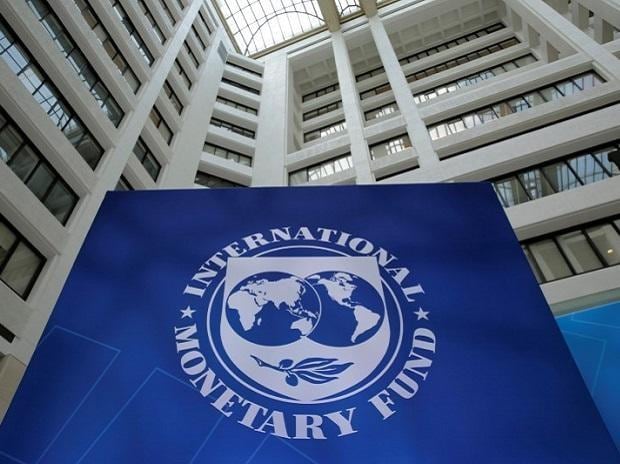[ad_1]
India needs a more ambitious fiscal consolidation roadmap to ensure medium-term debt sustainability amid growing risks to its growth outlook and shrinking fiscal space, the International Monetary Fund (IMF) said on Friday.
IMF, in its annual Article IV consultation report, said India’s debt-to-GDP ratio peaked at 89 per cent in FY21 and is projected to remain elevated over the medium term. IMF expects debt to GDP ratio to rise to 83.9 per cent of GDP in FY24 from 83.4 per cent in FY23.
The Washington-based global lender said India’s slow pace of fiscal consolidation means that debt is expected to remain at around current level, before gradually declining from FY26 onwards. “A more ambitious and well-communicated fiscal consolidation is therefore needed to ensure medium-term fiscal sustainability. Announcing further deficit-reduction measures would reduce uncertainty and lower risk premia. In the short-term, fiscal consolidation would also support the RBI’s efforts to maintain price stability,” it added.
IMF’s views come at a time when India’s FY24 Budget is in the works. The government faces the dilemma whether to aggressively reduce the fiscal deficit next fiscal year or go for a moderate fiscal consolidation to support growth amid rising global uncertainties.
Indian official disagrees
KV Subramanian, executive director for India at the IMF, representing the Indian government’s point of view, however, disagreed with the IMF assessment that India’s fiscal space is at risk.
“Authorities do not share the staff’s view that India’s fiscal space is at risk. Public debt remains very much sustainable given favourable growth dynamics and the strong commitment to consolidation,” he maintained.
Subramanian argued that with real growth of about 7 per cent, and inflation of about 4 per cent expected during this decade (i.e., nominal growth of about 11 per cent), debt to GDP ratio will reduce sharply with interest rate assumed at about 7 per cent.
India’s finance ministry has indefinitely deferred to amend the Fiscal Responsibility and Budget Management (FRBM) Act, even as it has reaffirmed commitment to reduce the fiscal deficit of 4.5 per cent of GDP by FY26 from 6.4 per cent in FY23. The IMF has projected the fiscal deficit to reduce only marginally to 6.2 per cent in FY24.
“With growth slowing to 6 per cent of GDP and monetary tightening under the baseline, the interest-rate and growth differential narrow over the projection period. Under a constant primary balance of -1.7 per cent of GDP (its projected level at the end of staff’s medium-term horizon), and an interest rate-growth differential of 3.5 percentage points, debt would decline to 70 percent of GDP (its average level before the pandemic) in about 17 years,” IMF said.
IMF cautioned that a sharp global growth slowdown in the near term would affect India through trade and financial channels. “Intensifying spillovers from the war in Ukraine can cause disruptions in the global food and energy markets, with significant impact on India. Over the medium term, reduced international cooperation can further disrupt trade and increase financial markets volatility. Domestically, rising inflation can further dampen domestic demand and impact vulnerable groups. On the upside, however, successful implementation of wide-ranging reforms or greater than expected dividends from the remarkable advances in digitalization could increase India’s medium-term growth potential,” it added.
The multilateral lender has projected India’s growth to ease to 6.1 per cent in FY24 from an estimated 6.8 per cent in FY23, reflecting the less favorable global outlook and tighter financial conditions. While it has projected the current account deficit to increase to 3.5 per cent of GDP in FY23 as a result of both higher commodity prices and strengthening import demand, the Indian authorities claimed it would remain within 3 per cent.
IMF and Indian authorities also differed on IMF’s assessment that rising food and fuel prices, or the pursuit of difficult structural reforms could create social discontent, causing capital outflows, slowing economic growth, and giving rise to economically damaging policies. “There is no such evidence of inflation causing social discontent in India, especially as India has not experienced hyperinflation. Even during the current pandemic, inflation has not increased abruptly reflecting coordinated monetary-fiscal measures,” Subramanian said.
[ad_2]
Source link



